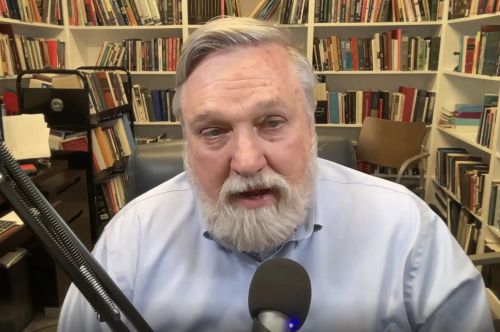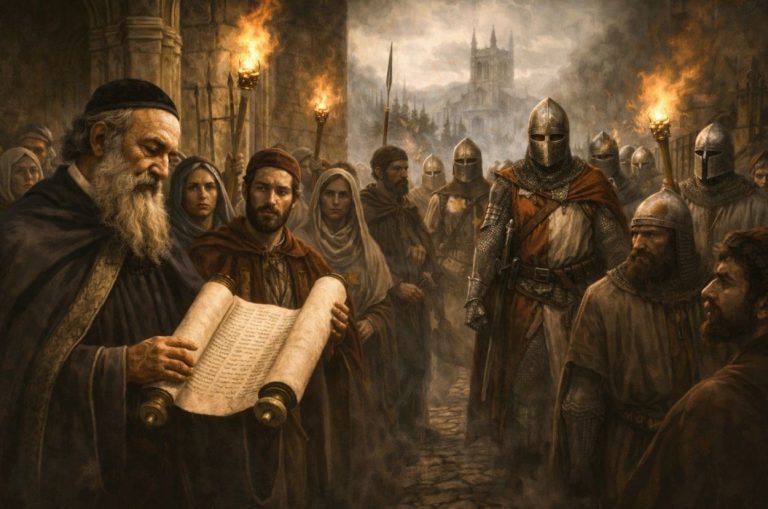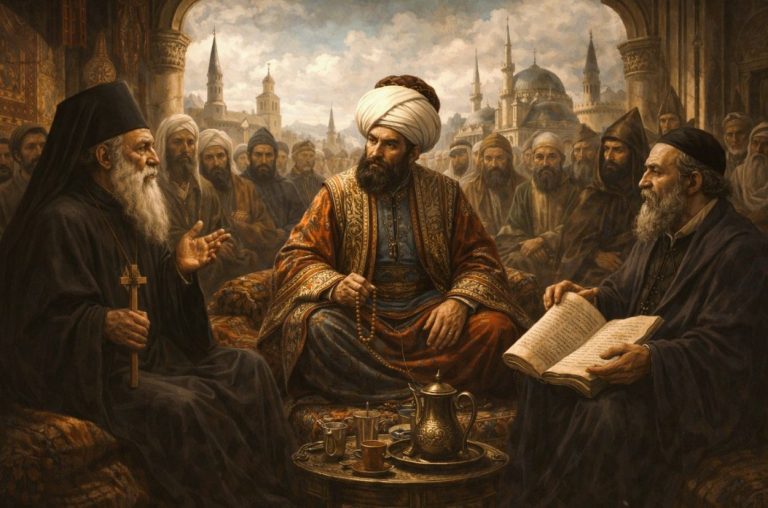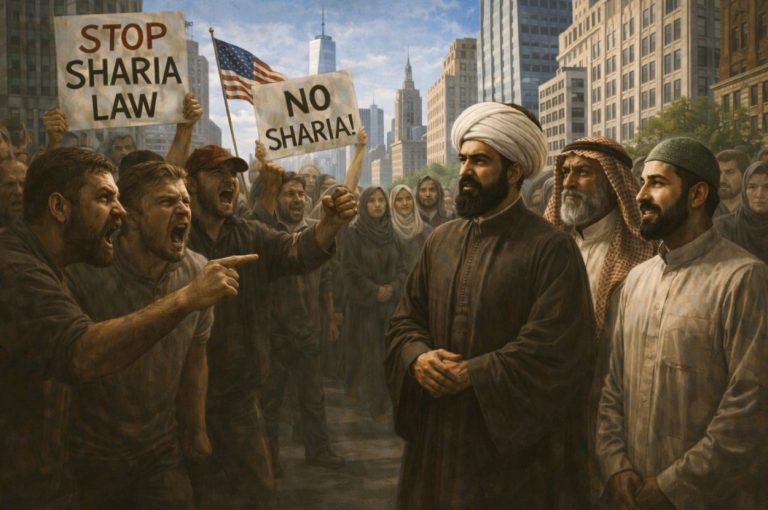

What emerges in Wilson’s rise is not only a story about one pastor but about the broader New Right project to baptize authoritarianism.

By Matthew A. McIntosh
Public Historian
Brewminate
A Pastor in the Spotlight
Doug Wilson, a controversial pastor from Moscow, Idaho, has become a new darling of the American right. Long considered a fringe voice advocating Christian theocracy, Wilson is now appearing alongside political figures like Defense Secretary Pete Hegseth and being referenced by Trump allies in official roles. His rise reflects a deeper trend: the co-option of religious language and imagery to legitimize political hierarchies that would otherwise seem plainly authoritarian.
Wilson’s sermons and writings speak in the familiar cadence of scripture, borrowing biblical authority to endorse cultural dominance. Phrases like “biblical patriarchy” or “God-ordained order” resonate not just as theological claims but as political blueprints. By cloaking these ideas in the language of faith, they become harder to challenge without appearing to reject religion itself. That rhetorical shield has become a powerful tool for the New Right as it seeks to merge nationalist politics with evangelical identity.
What makes Wilson’s rise especially significant is how quickly his reach has expanded beyond small-town pulpits into national conservative infrastructure. His books circulate in homeschooling networks, his lectures are streamed online to thousands, and his appearances on right-wing platforms give him visibility once unimaginable for a pastor with such overt theocratic ambitions. That amplification reflects a hunger on the right for religious voices willing to provide a sacred justification for political combat.
Sanctifying Obedience
The use of biblical imagery has always shaped American politics, but what is striking today is how explicitly scripture is deployed to sanctify obedience. Wilson and his allies cite verses on submission and hierarchy as though they were political commandments. The family becomes a metaphor for the nation, with the father as ruler and children as subjects. Critics note that such interpretations flatten the complexity of scripture into a single political message: loyalty upward, silence downward.
This framework allows authoritarian impulses to masquerade as divine order. When obedience to political leaders is presented as obedience to God, dissent is framed not only as unpatriotic but as blasphemous. The line between civic duty and spiritual devotion blurs, binding politics to theology in ways that narrow both.
Rebranding Theocracy as Tradition
In public appearances, Wilson’s rhetoric often positions his project not as radical but as deeply traditional. He invokes a mythic past of orderly households, strong churches, and moral clarity. This nostalgic framing appeals to audiences unsettled by cultural change and anxious about demographic shifts. What might otherwise sound like theocratic authoritarianism instead comes packaged as a defense of heritage.
That rebranding matters because it softens the edges of what is, in effect, a call for rule by religious authority. By presenting it as continuity rather than rupture, Wilson situates his movement within a larger conservative story about restoring lost greatness. This rhetorical sleight of hand allows authoritarian theology to travel under the banner of patriotism.
Yet the “tradition” being invoked is highly selective. The history it references erases dissenting voices, sidelines women, and ignores pluralist strands within Christianity itself. By framing exclusion as continuity, the New Right elevates a particular reading of the past into a supposedly universal norm, turning history into a tool of political enforcement rather than inquiry.
Faith as a Political Weapon
The political uptake of Wilson’s ideas illustrates how religion can be mobilized not only as personal faith but as strategic weapon. Trump-aligned figures have drawn on this language to suggest that federal employees should be vetted for ideological purity, that public institutions must reflect “biblical values,” and that cultural dissenters represent threats to national stability.
Religious freedom, once a principle of pluralism, is being reinterpreted as the freedom of one tradition to dominate others. In this vision, universities are suspect for nurturing skepticism, civil society groups are suspect for promoting diversity, and journalists are suspect for questioning authority. Biblical language lends a sacred sheen to the project, casting opposition not as political disagreement but as spiritual rebellion.
The Cultural Costs
The consequences of this shift extend beyond politics. Faith communities themselves risk being hollowed out when scripture is reduced to political slogans. Worship becomes indistinguishable from rallies, sermons blur into stump speeches, and prayer morphs into culture-war performance. For believers seeking spiritual nourishment, the conflation of piety with power corrodes both.
Religious historians warn that when faith traditions align too closely with authoritarian movements, they lose the credibility that comes from moral independence. The churches that once critiqued empire become chaplains to the state, and in doing so they surrender the prophetic voice that made them vital in the first place.
A Larger Danger
What emerges in Wilson’s rise is not only a story about one pastor but about the broader New Right project to baptize authoritarianism. Biblical language becomes the paintbrush for political visions that valorize hierarchy, demand obedience, and exclude the “unfaithful.”
The danger is not abstract. When faith becomes a vehicle for autocracy, both democracy and religion lose their integrity. Civic institutions that should serve all citizens bend toward one creed, and faith that should transcend politics is shackled to it. The result is a narrowing of both public life and spiritual life, with each diminished by the other’s captivity.
The pulpit has always been a powerful platform in American society. Today, that platform is being leveraged to translate authoritarian ambition into sacred command. Whether the nation can disentangle faith from this new political project will determine not only the future of democracy but the health of religion itself.
Originally published by Brewminate, 08.29.2025, under the terms of a Creative Commons Attribution-NonCommercial-NoDerivatives 4.0 International license.


